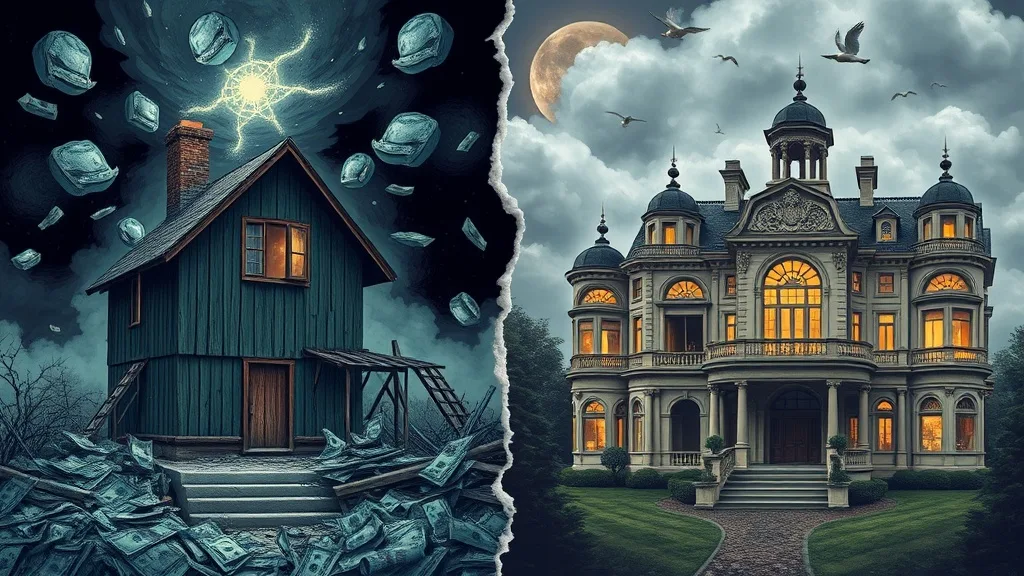5 Demographics of Individuals Prone to Dreams Associated with Bipolar Disorder
Want a Personalized Dream Interpretation?
Curious about how people like you interpret this dream symbol? Explore personalized interpretations tailored to your demographic. Get personalized insights for free!
Get Free Interpretation Now →Table of Contents
1. Age and Gender
Dreams can reflect our innermost thoughts, feelings, and experiences, and this is especially true for those with bipolar disorder. The symbols in our dreams can provide valuable insights into our mental health and well-being.
Age
- Younger individuals: Dreams of intense emotions, rapid mood swings, and reckless behavior.
- Older adults: Dreams of memory loss, difficulty concentrating, and feelings of worthlessness.
Gender
- Women: Dreams of mood swings, irritability, and racing thoughts.
- Men: Dreams of aggression, impulsivity, and grandiosity.
Understanding the unique dream symbols associated with bipolar disorder can help individuals and their loved ones recognize early warning signs, track mood cycles, and improve overall coping mechanisms. By paying attention to the imagery and emotions present in dreams, we can foster greater self-awareness and a deeper understanding of the complex nature of bipolar disorder.
2. Occupation and Education
-
High-Pressure Occupations:
- People working in high-stress environments (e.g., surgeons, lawyers) may experience vivid dreams characterized by frantic activity, deadlines, and a sense of urgency, reflecting the intensity of their waking lives.
-
Creative Professions:
- Artists, musicians, and writers often report imaginative dreams filled with symbols of inspiration, creativity, and emotional highs. These dreams may provide a space for their subconscious to explore and express their passions.
-
Educators:
- Teachers and professors may dream about classrooms, students, and educational materials. These dreams can be a reflection of their workload, responsibilities, and the impact they strive to make on others.
-
Unemployed Individuals:
- People who are unemployed may experience dreams about job hunting, financial stress, and feelings of inadequacy. These dreams can mirror their concerns and anxieties about their current situation.
-
Highly Educated Individuals:
- People with higher education levels tend to have more complex dream narratives and recall their dreams with greater detail. They may engage in lucid dreaming, where they can control and manipulate their dream experiences.
3. Socioeconomic Status
The socioeconomic status of individuals with bipolar disorder can significantly influence their dream symbolism. Those from lower socioeconomic backgrounds may experience dreams that reflect their struggles with poverty, insecurity, and lack of opportunity.

These dreams often revolve around themes of material scarcity, financial instability, and the fear of losing what little they have. Individuals may dream of being homeless, living in dilapidated housing, or unable to afford basic necessities. Such dreams can manifest as nightmares, evoking feelings of anxiety, desperation, and hopelessness.
Conversely, individuals from higher socioeconomic backgrounds may have dreams that reflect their experiences with privilege, stability, and success. They may dream of luxurious homes, fancy cars, and successful careers. These dreams can be pleasant and provide a sense of security and comfort. However, they may also come with a sense of pressure and responsibility to maintain their status.
4. Cultural Background
Dreams in Eastern Asian cultures often carry a strong spiritual and symbolic significance. In the context of bipolar disorder, dreams may reflect the individual's internal struggles and the challenges they face in navigating their emotional extremes.
-
Dreams of flying or soaring: These dreams can symbolize the manic state's elation and heightened sense of freedom.
-
Dreams of being pursued or trapped: Such dreams might represent the anxiety and fear experienced during depressive episodes.
-
Dreams of water: Water can symbolize the fluidity and unpredictability of the illness. Tranquil waters may indicate stability, while turbulent waters can reflect emotional turmoil.
-
Dreams of animals: Animals can represent different aspects of the self. Lions, for example, might symbolize the strength and aggression of mania, while snakes could represent the hidden fears and insecurities associated with depression.
-
Dreams of ancestors or spirits: In Eastern Asian cultures, dreams involving ancestors or spirits are often interpreted as messages from the spiritual world. They may offer guidance or support during times of emotional distress.
5. Health Status and Medical Conditions
Individuals with health conditions, particularly mental health disorders like bipolar disorder, often experience unique and vivid dream experiences.
- Bipolar Disorder: Dreams during manic episodes tend to be characterized by grandiosity, rapid thoughts, and flights of ideas. They may involve extravagant scenarios, excessive spending, or reckless behavior. Conversely, during depressive episodes, dreams become more somber, pessimistic, and may feature themes of helplessness, worthlessness, or self-harm.
Back to interpretation of bipolar disorder

